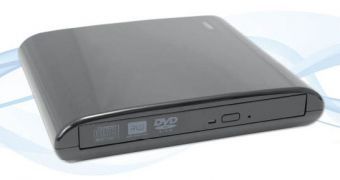The ALDI supermarket chain has recalled Fission external hard drives sold to Australian customers after it was discovered that they were infected with a variant of the Conficker worm.
The $99 device which combines an external hard drive, a DVD unit, an USB hub and a card reader, apparently came infected directly from the manufacturer.
The malware was detected by antivirus software from Kaspersky Lab and the incident was reported to the Australian Computer Emergency Response Team.
"The manufacturer recommends that this same software or similar be used to scan all customers’ computers and USB storage devices which have been in contact with the four-in-one hard drive, to detect and remove if present," ALDI said, according to SC Magazine Australia.
Conficker was one of the most fastest spreading worms in history. It appeared in the second half of 2008 and is estimated to have infected up to 12 million computers worldwide.
Its success was due to the fact that organizations were slow to patch a critical Windows vulnerability across their networks and because the worm used multiple propagation methods, including copying itself to USB drives and network shares.
This is not the first time when devices are being shipped together with malware by a hardware manufacturer, but seeing Conficker infections almost three years after the original outbreak raises some questions.
All antivirus programs should detect its variants by now which suggest that no malware scan was performed during the quality assurance process. Otherwise one of these infected devices would have been picked up before reaching consumers.
Nevertheless, ALDI is in good company when it comes to shipping infected devices. In December 2008, Amazon warned customers who bought Samsung's SPF-85H 8-Inch Digital Photo Frame that the installation disc contains malware.
In May 2010 IBM was left with a red face after handing out infected USB memory sticks at the AusCERT Asia Pacific Information Security Conference. That same year, Vodafone Spain issued a security alert after distributing as many as 3,000 smartphones with infected microSD cards.

 14 DAY TRIAL //
14 DAY TRIAL //